
Madeline (Madge) McDowell Breckinridge was an American leader of the women's suffrage movement in Kentucky. She married Desha Breckinridge, editor of the Lexington Herald, which advocated women's rights, and she lived to see the women of Kentucky vote for the first time in the presidential election of 1920. She also initiated progressive reforms for compulsory school attendance and child labor. She founded many civic organizations, notably the Kentucky Association for the Prevention and Treatment of Tuberculosis, an affliction from which she had personally suffered. She led efforts to implement model schools for children and adults, parks and recreation facilities, and manual training programs.

Lillian Rozell Messenger was an American poet from Kentucky. Among her first acknowledged poems were those brought out in a volume entitled, Threads of fate, 1872. Other volumes included Fragments from an old inn, 1885; The Vision of gold, 1886; and The Southern Cross, 1891. "Columbus" was read by Governor John Wesley Hoyt of Wyoming Territory during the patriotic celebration at the Woman's Building, World's Columbian Exposition in Chicago, 1893. "In the heart of America," was read at the Cotton States and International Exposition, in Atlanta, 1895. Messenger contributed many poems to the Louisville Journal, Memphis papers, and the New York Home Journal. Her most ambitious poems were lengthy, narrative ones, with themes such as "Charlotte Corday" and "Penelope, the Wife of Ulysses". Messenger died in 1921.

Helen Ekin Starrett was an American educator, author, suffragist, and magazine founder. Long engaged in educational work in Chicago, she founded the Kenwood Institute (1884), and Mrs. Starrett's Classical School for Girls (1893), of which she was principal. Starrett also founded Western Magazine. She served as president of the Illinois Woman's Press Association (1893–1894), and was the author of several works.

Alice Moore McComas was an American author, editor, lecturer and reformer. She was a pioneer suffragist in California and served as president of the Los Angeles Equal Suffrage Association. During the various suffrage campaigns, McComas contributed articles to over seventy newspapers and magazines, and she was well known throughout the west as an educator and lecturer. She was accredited with being the first woman to conduct a department for women in a daily paper in California, and the first woman to address a state Republican ratification meeting. She was one of the earliest organizers of the Free Kindergarten Association and of clubs for working women, and was prominent in many movements for civic welfare. She was Associate Editor of The Household Journal of California and author of several books, among them The Women of the Canal Zone and Under the Peppers. McComas contributed travel sketches to many magazines. She died in 1919.
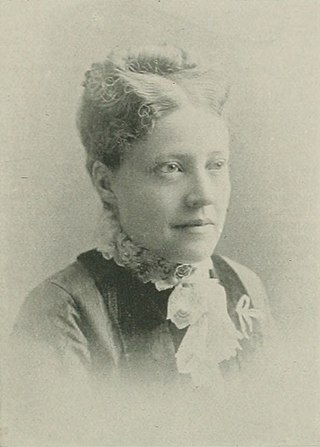
Emma A. Cranmer was an American temperance reformer, woman suffragist, and author. A talented suffrage speaker and prohibition representative, she served as president of the South Dakota Woman's Christian Temperance Union (WCTU) and the South Dakota Equal Suffrage Association. Some of her epigrams were published by the press. Cranmer died in 1937.
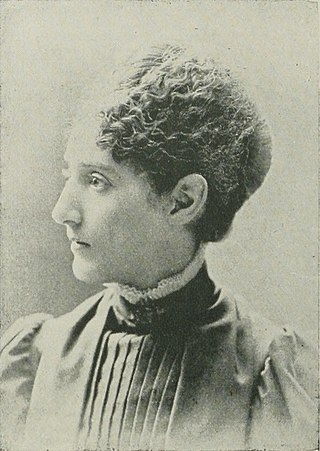
Ella Giles Ruddy was an American author and editor. She published a large number of essays on social science topics. Ruddy was the author of Bachelor Ben, Out From the Shadows, Maiden Rachel, and Flowers of the Spirit (verse). She also wrote stories for Harper’s Bazaar, literary sketches for Chicago Times, The Century, New York Evening Post, and others. She was the editor of Mother of Clubs. Her literary friends included Lilian Whiting and Zona Gale.

Mary Gray Peck was an American journalist, educator, suffragist, and clubwoman. She was interested in economic and industrial problems of women, and investigated labor conditions in Europe and the United States. Born in New York, she studied at Elmira College, University of Minnesota, and University of Cambridge before becoming an Assistant Professor of English at the University of Minnesota. Later, she became associated with the General Federation of Women's Clubs, College Equal Suffrage League, National American Woman Suffrage Association, Women's Trade Union League, Woman Suffrage Party, and the Modern Language Association. Peck was a delegate at the Sixth Conference of the International Woman Suffrage Alliance in Stockholm, 1911.
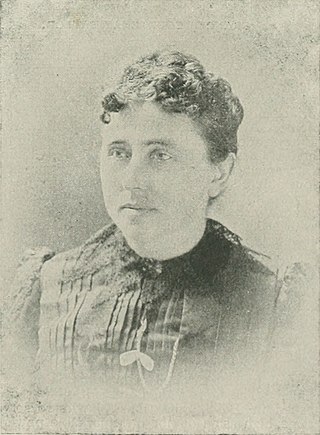
Marion Babcock Baxter was an American lecturer and author.

Minnetta Theodora Taylor was an American author and poet of the long nineteenth century. A polyglot, Taylor spoke 45 languages. She was also a clubwoman and suffragist. Shortly after Taylor's death in 1911, the Woman Suffrage Party post-humously awarded her the prize for the best poem, "Ballot Song of American Women", to be set to music and to become the National Suffrage Anthem. Among her intimate friends were the writers, James Whitcomb Riley, Lew Wallace, George Ade, Wilbur D. Nesbitt, Rex Beach, and Bliss Carman; Opie Read called her "The Little Sister of Poets".

Louise Collier Willcox was an American author, editor, anthologist, translator, and suffragist. During her career, she worked for Harper's Weekly, Harper's Bazaar, North American Review, Macmillan Publishers, and E. P. Dutton & Co. Willcox was the author of several books, and she contributed to several magazines and newspapers, sometimes using a pseudonym. Her publications included, Answers of the Ages, The Human Way (1908), and A Manual of Spiritual Fortification (1910). She died suddenly in Paris, France, age 64.
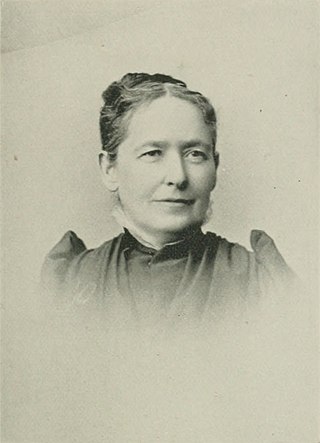
Jane Lord Hersom was an American physician and suffragist.
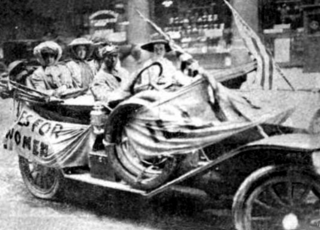
S. Grace Nicholes was an American social reformer. Like her sister, Anna E. Nicholes, she was a suffragist, a clubwoman, and a co-founder of Neighborhood House Chicago.

Hester A. Benedict was an American poet and writer. She had a literary reputation in the East before her removal to California where she served as president of the Pacific Coast Women's Press Association in San Francisco. Dickinson's works included, Vesta (1872), Fagots (1895), and Songs En Route (1911). After her second marriage, she retained "Hester A. Benedict" as a literary name, and also used it as a pen name in her second book, but not for the third one.
Lucie Fulton Isaacs was an American writer, philanthropist, and pioneer suffragist. As a writer of essays and descriptive articles, she was known to early readers of the Overland magazine and other western periodicals under various pen names, suffering from shyness that made her shrink from publicity. She was a co-organizer of the first woman's club in Walla Walla, Washington, a member of the Oregon Pioneer Association, and a supporter of the arts. Isaacs served as president of Walla Walla's suffrage association, lived to see full suffrage given to women, and voted before her death in Walla Walla, November 1916.
Minnie Rutherford Fuller was an American farmer, broker, temperance leader, suffragist, and lobbyist. She served as president of the Arkansas Woman's Christian Temperance Union (W.C.T.U.).

Alice Barbee Castleman was an American social leader, philanthropist, and suffragist. She was known throughout the country for her activities in political and civic endeavors.

Eleanor Churchill Gibbs was an American educator from the state of Alabama, who taught in Livingston, Selma, Rome, and Anniston. She was also a paid contributor to various periodicals.
Cola Barr Craig was an American author of short stories and a novel. Also a clubwoman, she served as president of several organizations including the United Daughters of the Confederacy (U.D.C.), the Memorial Association of Selma, Alabama, and United Charities of Selma.

Pen and Brush Club is an international organization of professional women, writers and artists. Organized in 1897, the women formed themselves into a club of which the object was to be recreation and the promotion of social dialogue. An occasional afternoon "Shop Talk", for members only, affords opportunity for free helpful discussion of professional matters, and a tea is given on Tuesday of each week, to which members may invite their friends informally, while on the first Sunday of every month from October to May, a reception is held in honor of some guest of literary or artistic note. The original location was at 26 West Twenty-second Street, New York City.

















